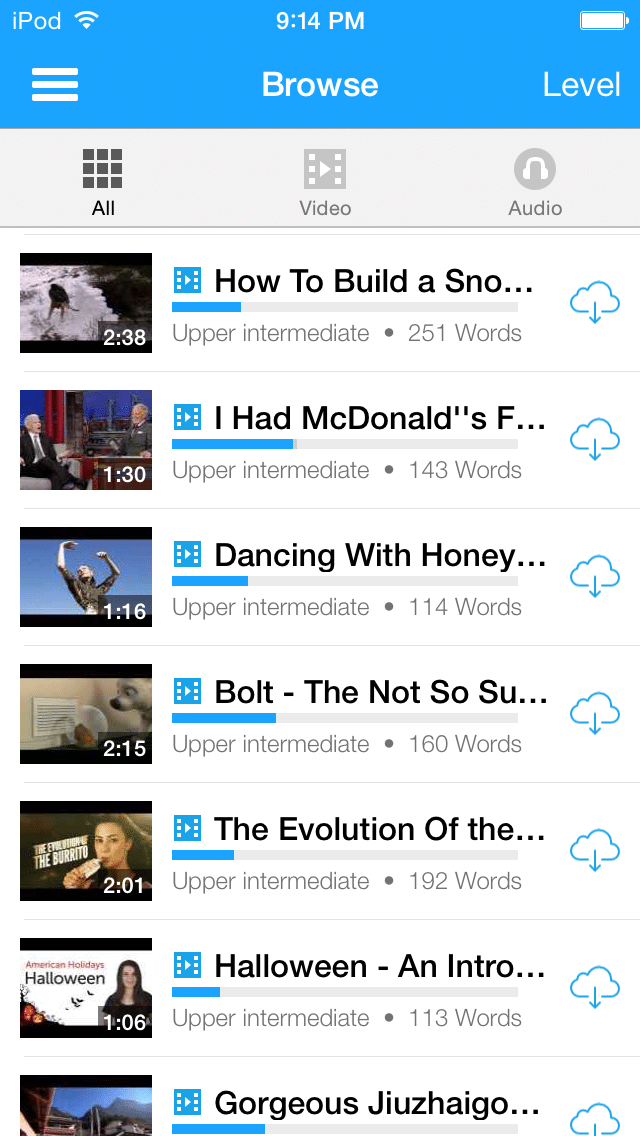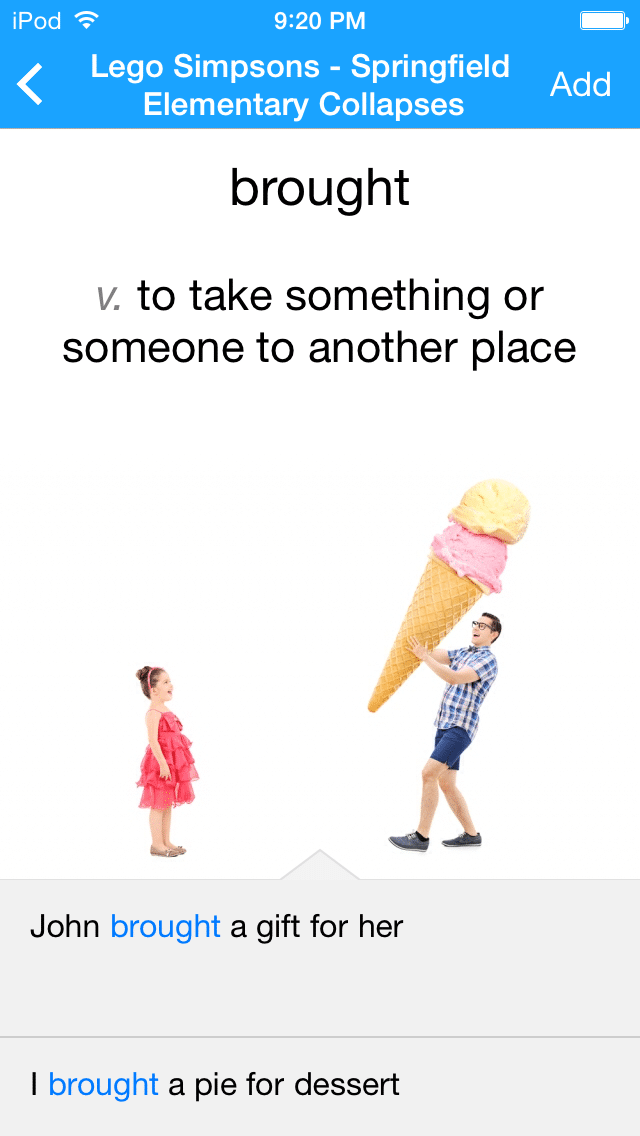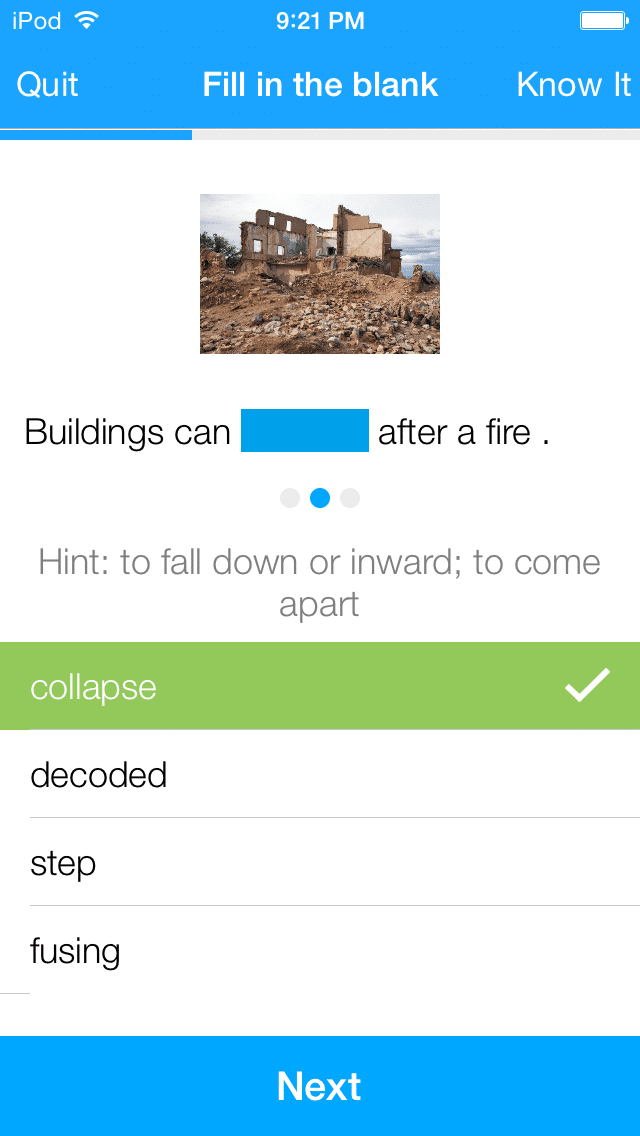What Are the Biggest Difficulties in Learning English? Master These 3 Frustrating Factors
Need a rescue?
Difficulties in learning English can make you feel lost at sea.
Without some help, it can be very hard to get moving in the right direction again.
But overcoming those difficulties may be a lot easier than you think.
Don’t believe us?
We’ll show you the three biggest difficulties in learning English vocabulary, pronunciation and conversation skills.
And we’ll show you simple tricks to master those difficulties and move on!
You’re Not Alone! How to Overcome English Difficulties with Others
Have you thought that your classmates and other English-learning friends might also be frustrated with difficulties in learning in English?
They probably are!
They’re probably pulling their hair and drinking cups and cups of coffee because of the same stressful feelings you have.
But what better way to overcome these difficulties than as a group?
Studies have shown that studying in a group can boost your learning! Group studying makes learning more fun and reduces the stress you might feel about difficult English topics.
Group learning also doesn’t have to take place only in an educational setting. It can take place in a cafe, pub, classmate’s home, restaurant, park or even in public transportation.
Your group can make learning more effective by creating role-playing games where you act out real-world English situations. You can also try a drinking game or even a bet where a reward is involved—whatever you need to make it fun and motivating for everyone.
But what happens when your group isn’t really sure if you’re studying the right way?
Ask a native speaker to be part of the learning time, if possible. He or she can be the referee, keeping score for the games or listening for mistakes in your role-playing exercises.
How to Overcome 3 Major Difficulties in Learning English: The Life-saving Guide
English Difficulty 1: Vocabulary Words with Multiple Meanings
Have you ever seen an English word that you thought you knew—but used in a completely strange way?
English vocabulary is especially difficult because there are so many words that have multiple definitions, so it’s easy to misunderstand their meanings. It’s also difficult to memorize many different definitions for each word.
Take the word date, for example. This word can mean:
- A specified day of the month
- A time two people spend with each other romantically
The only possible way to understand which definition is being used is to pay attention to context clues. This means using the surrounding words and sentences to find out which definition for the word makes sense.
Even if you haven’t learned all the definitions for a difficult English word, context clues can help you figure out the right definition!
Can you figure out which definition for the word date makes sense in the two sentences below?
When’s the date for the first day of school again?
Would you like to go on a date with me?
In the first sentence, someone is asking for a specific day when school starts. This isn’t a romantic event that two people will spend together. The first definition applies here.
The second sentence is trickier, but you can tell that the person isn’t asking for a single, specified day. They’re asking to spend time with you. The second definition applies here.
Another trick is to pay attention to the part of speech (e.g. noun, adjective, etc.). Very often, the different definitions for an English word will have different parts of speech, so it’s easy to tell them apart.
Take the word point. This word can mean:
- To gesture towards a place, direction, person or thing (verb)
- The sharp end of an object (noun)
In the following sentences, look at the role of the word point to figure out which definition makes more sense.
Can you point to the exit? I can’t find it.
She tapped me with the point of her pencil.
In the first sentence, the word point is being used as a verb, so we can deduce that the first definition applies. In the second sentence, the word point functions as a noun, and we can tell that the second definition applies.
If you’re looking for more help in learning English vocabulary words that have more than one meaning, this video shows more examples and explanations!
English Difficulty 2: Words That Don’t Sound the Way They Look
Even native English speakers have trouble with this one!
In the English language, a large number of the words aren’t spelled phonetically. That means they sound very different from what you’d expect based on their spelling.
Look at these words, for example:
- February: We don’t pronounce the “r” in this word at all. You might sound it out as feb-you-air-ee.
- Choir: You might expect to pronounce the “ch” sound here, like in the word chair. But this word is actually pronounced like qui-or.
- Knife: The “k” is completely silent!
So how can you overcome this difficulty in learning English?
There are two very useful tools for hearing the correct, native pronunciation of difficult English words:
- Forvo: Forvo is an audio dictionary. You can type in any word and you’ll get recordings of native English speakers pronouncing the word!
Better yet, Forvo will even show you where the speaker is from, so you’ll know if you’re getting the pronunciation in American, British, Australian or some other type of English.
- FluentU: FluentU is an incredible tool to learn English pronunciation (and many other skills) directly from native speakers.
It provides real English videos—like movie trailers, music videos, inspiring talks and more—that’ve been transformed into personalized English lessons.
There are many different types of videos, as you can see here:
FluentU makes it easy to watch and understand native English videos with interactive captions. Tap or click on any word to see what it means, learn how to use it, hear it pronounced and more.
For example, if you tap on the word “brought,” then you see this:
You can learn any video’s vocabulary with FluentU’s fun quizzes. Swipe left or right to see more examples for the word you’re learning.
The videos are organized by genre and level, so it’s super easy to find the ones that work for you. FluentU also keeps track of your learning, then suggests videos and examples perfect for you.
Start using FluentU on the website or download the FluentU app from the iTunes store or Google Play store.
English Difficulty 3: Getting Real-life Speaking Practice
If you truly want to gain the full experience of speaking in English, you need to actually talk with native speakers. This is the only way to practice having real English conversations. But it can be really difficult for a couple of reasons.
For starters, if you don’t live near in an English-speaking region, you might not know where to find native speakers to practice with.
Second, English conversations can be scary! There’s a lot of pressure when someone is waiting for you to come up with an English sentence.
It’ll be tough in the beginning! But fear not.
There are other ways you can meet and talk with native speakers without feeling lots of pressure, no matter where you currently live.
Language Exchange Apps
A language exchange app is one of the best options to practice speaking and typing in the English language.
You have the comfort of messaging native speakers without leaving home! You can wear your most comfortable pajamas, sit in your favorite spot in the park or even use online apps in between classes while messaging native speakers.
You won’t feel too much pressure since everything is done by either your phone, tablet or computer. Some popular apps you can find to download for free are:
- HelloTalk: A convenient language exchange app with audio and text chat. There are built-in tools for translation, correcting errors and more.
- Tandem: Similar to HelloTalk with lots of great language learning features. However, this one also has the option to seek out a professional tutor.
Language Voices
If you enjoy meeting new people and would like to converse with native speakers in a comfortable setting, language cafes can be another great option for you! These are in-person events where you can meet native speakers as well as other language learners.
They’re relaxing events where people can teach, read, write or meet with friends, so it doesn’t feel like you’re studying but having loads of fun and drinking loads of coffee!
Language Voices is a great option to find a language cafe near you! Their language cafes cover lots of different topics, whether it be business English, grammar, listening skills and much more.
Their options are mainly Europe-based, with cafes from Finland to Turkey. You can use their app to find one near you, or organize your own!
Source: https://www.fluentu.com/blog/english/difficulties-in-learning-english/
Source: https://www.fluentu.com/blog/english/difficulties-in-learning-english/







Немає коментарів:
Дописати коментар